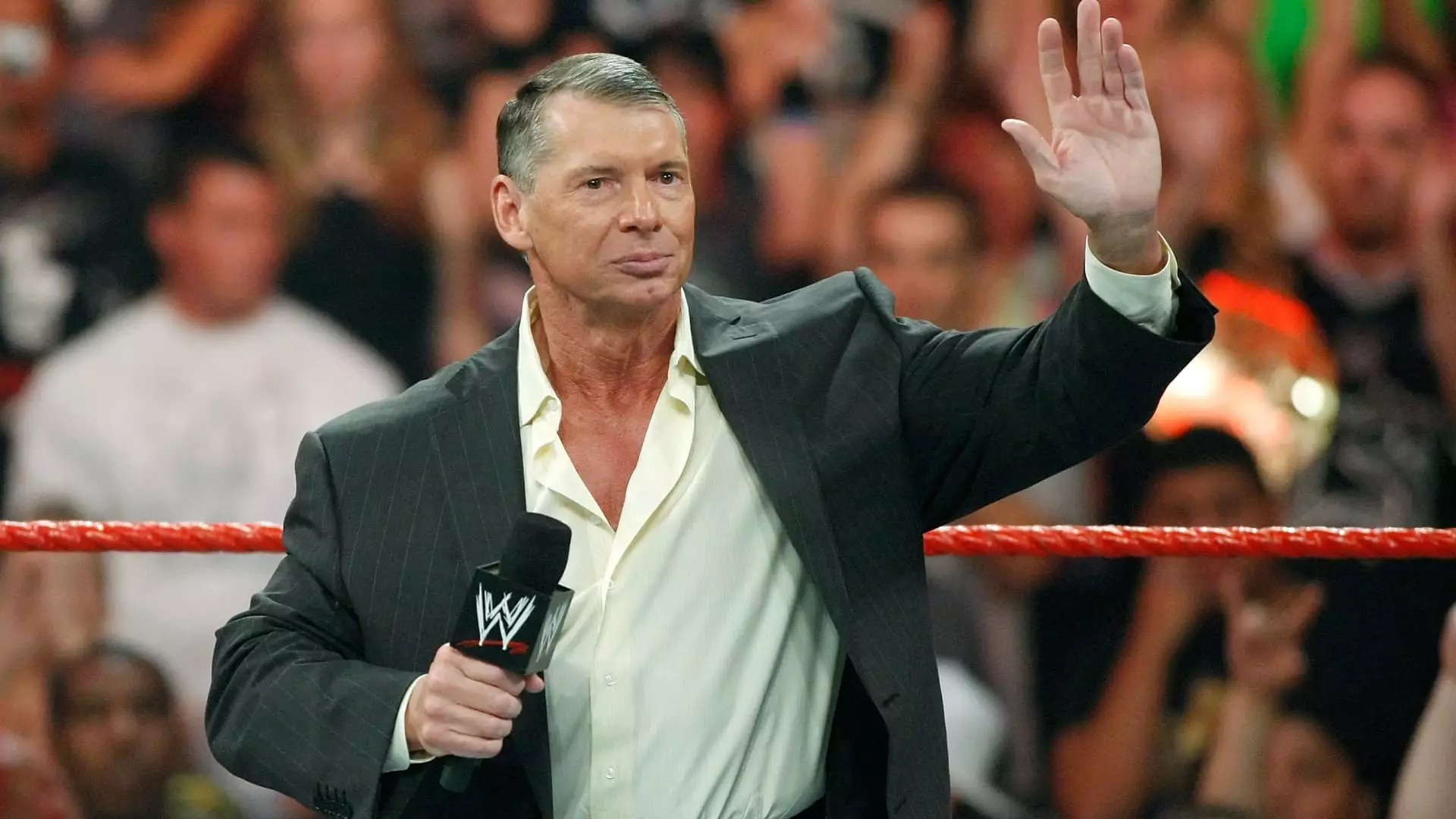The world of professional wrestling, often viewed through a lens of spectacle and entertainment, has recently come under scrutiny for disturbing allegations that have surfaced regarding its executives and the abuse of young boys in the 1980s and 1990s. Vince McMahon, his wife Linda, and World Wrestling Entertainment (WWE), along with its parent company, TKO Holdings, stand accused of complicity in the exploitation of “ring boys,” who were young assistants to announcers and wrestlers. The lawsuit, filed in Baltimore County on behalf of five anonymous plaintiffs, paints a harrowing picture of systemic abuse that raises profound ethical and legal questions about accountability and institutional oversight in one of the most influential entertainment organizations in the world.
The lawsuit comes forth with alarming assertions that the WWE and its leadership were not only aware of the alleged misconduct perpetrated by Melvin Phillips Jr., a ringside announcer, but also took actions that effectively enabled it to continue. Phillips, who died in 2012, is accused of grooming and abusing boys as young as 12 years old under the guise of mentorship and friendship. This alleged predatory behavior is reported to have taken place at various venues, including wrestling events and hotels, where Phillips would lure his victims with the promise of meeting wrestling stars. Such manipulative tactics exemplify a calculated abuse of power, exploiting the vulnerabilities of children from broken homes.
The survivors, referred to as John Does in the lawsuit, seek justice for actions that they have only recently come to comprehend in terms of institutional failure. One particularly chilling aspect of the allegations asserts that Phillips filmed some of these abuses, exacerbating the violation of trust and amplifying the psychological trauma inflicted on these young boys. The gravity of the situation demands reflection not only on the individuals involved but also on the organizational culture that seemingly permitted this behavior to fester.
As the lawsuit unfolds, a central issue emerges regarding accountability within the WWE and its hierarchy. The McMahons, as the faces of WWE, are accused of ignoring or downplaying reports about Phillips’ troubling conduct, with claims suggesting that they were aware of his “peculiar and unnatural interest” in young boys. A key moment came in 1988 when Phillips was fired after allegations surfaced, only to be rehired six weeks later with the caveat to “steer away from kids.” This act of reemployment constitutes a grave misstep, hinting at a broader culture of neglect towards the protection of vulnerable individuals.
Greg Gutzler, the leading attorney in the case, highlights the moral failing of those in power: “It is simply unconscionable that so many were allegedly aware of the abuse and doing nothing to stop it.” This assertion serves as a stark reminder of the responsibilities that central figures in any organization hold and the catastrophic consequences of their failure to act. The culture of silence that seems to pervade not just WWE but various sectors in society can result in untold harm, perpetuating cycles of abuse that are difficult to break.
The renewed focus on these allegations is also contextualized by Janel Grant’s lawsuit against McMahon, alleging sex trafficking and coercion. This connection raises questions about an oppressive environment where such behaviors may be tolerated or overlooked, especially if it serves the interests of those in power. Public reactions to these lawsuits have intensified with the recent Netflix documentary “Mr. McMahon,” which delves into similar accusations against McMahon, placing the wrestling industry under a critical lens.
Marci Hamilton, CEO of Child USA, a nonprofit driving for reforms in children’s rights, emphasizes the significance of the legal structures that allow such cases to be brought forward, noting the importance of statute of limitations reforms. The pursuit of justice for survivors of long-ago trauma can often be thwarted by outdated legal frameworks, but advocacy efforts are striving to change this landscape. The ongoing legal battle, made possible by changes in legislation, can potentially lead to a reckoning not just for the WWE, but also for broader societal attitudes towards accountability for abusers and institutional negligence.
The allegations against Vince McMahon, WWE, and their affiliates underscore a critical moment in the intersection of power, entertainment, and responsibility. As these lawsuits unfold and more details come to light, they challenge fans, stakeholders, and the broader community to engage with the darker sides of an industry that many have long admired. The path to justice for the alleged victims will likely be arduous, but it is essential for fostering a culture of accountability that prioritizes the safety and dignity of all individuals, particularly the most vulnerable. In addressing past wrongs, the wrestling community has the opportunity to redefine its future, ensuring that such tragedies are never allowed to occur again.


Leave a Reply